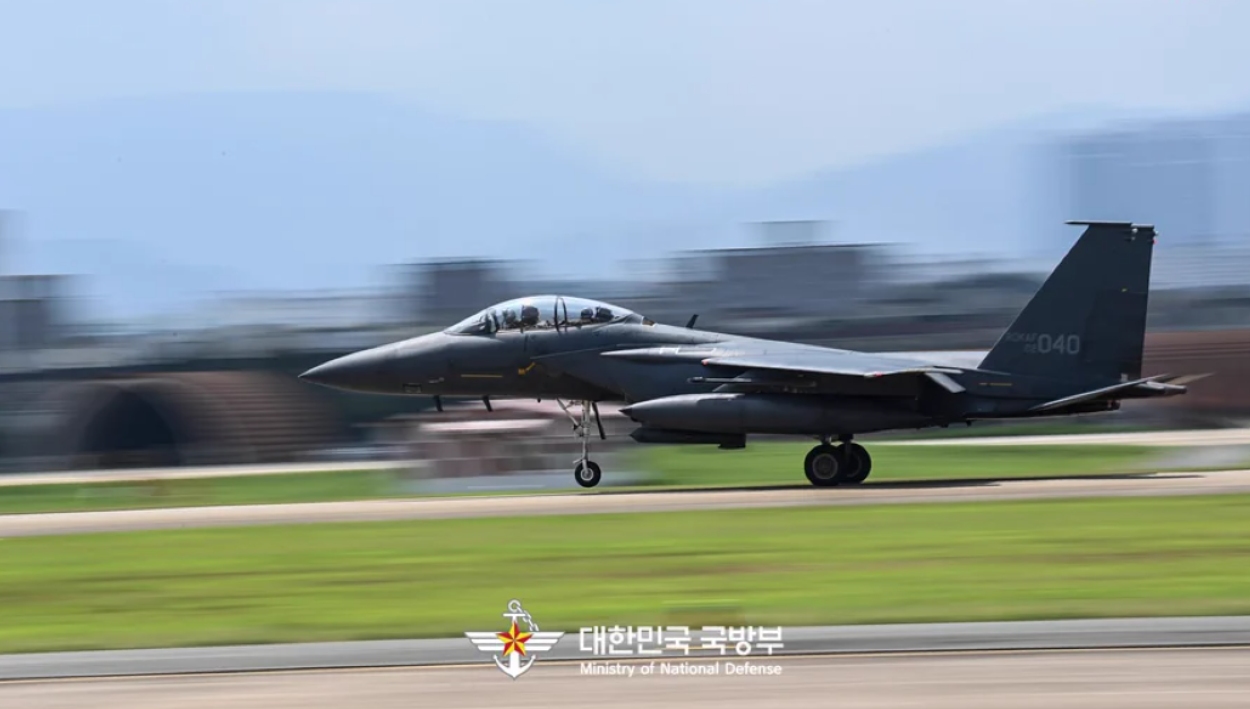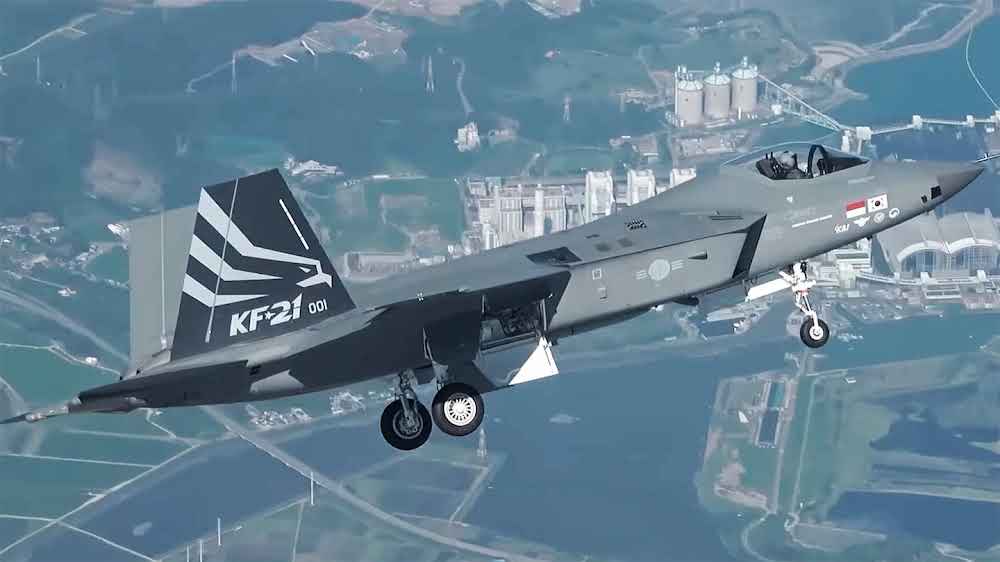On March 22, South Korea’s defense officials approved a proposal to commence the production of 20 KF-21 Boramae fighter jets this year, marking a major shift from the initial proposed production volume.
The KF-21, an advanced supersonic fighter, is slated to replace the South Korean Air Force’s aging F-4 and F-5 jet fleet. The decision comes after a report last year recommended reducing the initial production volume of the domestically developed fighter.
Originally, the Defense Acquisition Program Administration (DAPA) had intended to ink a contract in 2024 with Korea Aerospace Industries Ltd., the manufacturer of the KF-21, to construct 40 units as the first batch of this advanced fighter, which has been in development since 2015.
However, following the recommendations of a feasibility study conducted last year, which highlighted the necessity for additional testing, particularly regarding the jet’s air-to-air missile and active electronically scanned array radar capabilities, the production volume was halved to 20 units this year.
The remaining units of the planned 40 aircraft will be contracted the following year after further testing.
A DAPA official, speaking on condition of anonymity, stated, “(We) plan to complete verification tests by June this year and sign a contract for the remaining 20 units by next February after consultations with relevant agencies.”
Despite the phased approach, the Defense Project Promotion Committee has approved the overall production plan for 40 KF-21s, with an estimated cost of 7.92 trillion won (US$5.9 billion) spanning from 2022 through 2028.
Emphasizing the commitment to timely deployment, the DAPA official clarified that the ultimate production volume remains unchanged.
Should the project progress according to plan, the South Korean Air Force anticipates receiving its first KF-21 in the latter half of 2026. Looking ahead, South Korea aims to expand its KF-21 fleet further, with aspirations to operate 120 units total by 2032.
DAPA expressed optimism about the project’s contribution to enhancing the Air Force’s capabilities, highlighting the KF-21’s compatibility with cutting-edge fighters for joint operations.
The Progress Of KF-21 Fighter Jet
The Boramae fighter jet is set to become the “backbone” of South Korea’s Air Force and is expected to play a key role in expanding the country’s three-axis defense system, a strategy devised to counter potential threats from North Korea.
Under development since 2015, the Boramae program gained significant momentum in 2020 when assembly for the prototype commenced.
The government tasked Korea Aerospace Industries (KAI) with producing the jet, and technological support was sought from American firm Lockheed Martin, building upon their prior collaboration on the FA-50 light attack aircraft.

The aircraft conducted its maiden flight in July 2022. Since then, the DAPA has been rigorously testing the Boramae, with various performance evaluations conducted on the six prototypes.
In January 2023, KF-21 Boramae carried out a supersonic flight test for the first time. Recently, prototype No. 5 completed its first aerial refueling test, marking another milestone in the Boramae program and signaling advancements in its capabilities.
Tests, encompassing flight, ground, and additional evaluations, are slated to continue until 2028, coinciding with the commencement of Air Force squadron deployments of the first batch of KF-21s for air-to-air missions.
With ongoing testing and development efforts, the Boramae is poised to emerge as a powerful asset for the South Korean Air Force, reinforcing its ability to effectively respond to modern security threats.
In the fifth-generation or 4.5++ generation race, South Korea appears to be joining the elite group of nations—the US, Russia, and China—with a fifth-generation warplane.
For now, South Korea has taken a massive lead over India (which is working on AMCA) and Turkey (working on KAAN) 5th-gen fighter aircraft.
KF-21’s airframe is reported to be stealthier than fourth-generation fighters, but it doesn’t match the capabilities of a fifth-generation aircraft like the F-35, as of now.
Presently, it doesn’t have internal weapons bays, but there are plans for future upgrades that could include them, potentially leading to the country reclassifying the aircraft as a fifth-generation fighter.
Once that happens, KF-21 could become the 4th country to develop & operate a 5th-generation warplane.

Meanwhile, South Korean defense authorities are also working on a project aimed at enhancing the performance of the Air Force’s F-15K fighter jets, manufactured by US defense giant Boeing. The project, slated to run through 2034, aims to bolster the F-15Ks’ long-range operational capabilities and armament capacity.
Additionally, the South Korean military is actively pursuing the indigenous development of a ship-to-ship ballistic missile. The project, managed by the Defense Research Institute (ADD), focuses on building a ship-to-surface guided missile capable of accurately striking key ground targets from a naval vessel.
The missile is set to feature enhanced capabilities surpassing those of the Standard Missile-2 (SM-2) presently employed by the Navy.
The objective is to integrate this advanced capability into the King Jeongjo-class Aegis destroyer and the forthcoming Korean-style destroyer (KDDX). Scheduled to span from the present year through 2036, the project entails an estimated cost of approximately 690 billion won ($520 million).
- Contact the author at ashishmichel(at)gmail.com
- Follow EurAsian Times on Google News




